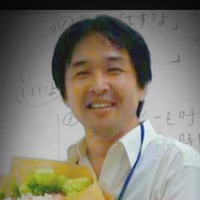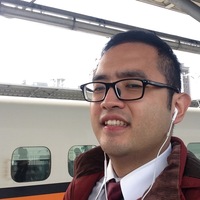🌸🌸🌸 About Teacher Yano🌸🌸🌸
🌸 Japan Calligraphy Association "Brush Association" 4th dan, April 1987
🌸 Certified by the Ministry of Education & Science of Japan, Practical English Proficiency Test Level 2 July 1989
🌸 Accredited by the University of Lisbon, International Portuguese Level 2 (DAPLE)September 1999
🌸the said Portuguese level 1 ( DUPLE ) September 2003
🌸Certification of the Travel Bureau of the Macao Special Administrative Region of the People's Republic of China, Japanese Guide License September 2012
🌸 Certified by Japan Shogi Association, Japan Shogi 1st Dan June 2015
🔥🔥🔥 What were the classes that Teacher Yano was in charge of 🔥🔥🔥?
🔥During the Macao Japan Cultural Association period (April
2008 ~ August 2010), he was mainly in charge:
🔥Plan intermediate and advanced classes, tests, and exams (after graduating from all 50 lessons “Minna no Nihongo”)
🔥* Materials: "25 subjects: Japanese to learn from intermediate by theme" 25 lessons;
🔥 Conversation class assistant;
🔥 In addition, beginner~intermediate content is also taught in private lessons;
🔥Former Japanese Proficiency Test Level 1 Preparatory Class;
🔥Plan classes, tests, and exams for the Advanced Japanese class (after graduating from all 25 intermediate and advanced lessons)
🔥* Teaching materials: "15 subjects: Japanese learned in advanced thematic courses" 15 lessons.
🔥In October 2008 started teaching on JLPT to my first private tuition student; he passed the old grade 2 in 2009 and new N1 in 2010 , and is currently studying biophysics at the University of Tokyo.
🔥Main responsibilities of the Kyowa Chinese-Japanese Language Center (Zhuhai City) period (December 2012 ~ February 2014):
🔥N2 course class* In terms of content, the texts of all 25 intermediate Japanese lessons are the same as the "intermediate and advanced" handled by the Macao Japan Cultural Association (but continental version) + N2 grammar/reading comprehension practice;
🔥In charge of the 11th batch of Japanese intermediate students at Canon Zhuhai Beiling Plant (April ~ December 2013)*Teaching materials:
🔥 "New Japanese Intermediate (Shin Nihongo no Chukyu)" 20 lessons;
🔥Intermediate classes for the Kyowa school students using all 20 lessons of the "New Japanese Intermediate" above;
🔥Other individual classes.
🔥January 2015~, started as a Japanese teacher at the Macao International Exchange Association (~March 2019).
🔥 Japan Shogi, Kansai dialect, JP honorific language, and other " Japan Food Culture Lectures", "Japan Calligraphy Lectures",
🔥" Japan Warring States Warlords" etc. [Japan History and Culture Lectures];
🔥Plan and implement classes, tests, and exams for N2~N1 courses *Teaching materials: "Minna no Nihongo/Intermediate" 24 lessons;
🔥 Individual classes (conversation, primary~intermediate, or N2 and N1 students);
🔥 "Shinkai 6" class (November 2018 ~ March of the following year), * Last part of "Minna no Nihongo" 50 lessons.
🔥 In particular, please leave N2 and N1 "reading comprehension" to me. By changing your reading comprehension from weak to good at it, you are more likely to break through. Also please leave other "characters, vocabulary / grammar" to me. Those who manage reading comprehension and grammar are not afraid of N2 and N1.
🔥 The highest N1 and N2 scores of students taught to date:
🔥N1: 158/180, N2: 178/180 *Both "Reading" and "Listening" 60/60.
🔥 In addition to them, there’s another student who scored perfect scores in both "reading comprehension" and "listening comprehension" in N2.
🔥From 2008 to 2014, I mainly taught JP intermediate and advanced, but since 2014, I have been teaching individual students from introductory and beginner levels, and I can
handle all levels from introductory ~ beginner ~ intermediate ~ advanced (N1 or higher).
🌈🌈🌈 Professor Yano's life 🌈🌈🌈
🌈 My father failed in business and my family was poor, so I started working at a factory at the same time as graduating from high school in Shinshu (= Nagano Prefecture). At the factory, I met second-generation Brazilian migrant workers.
🌈 After that, while working, I entered the Portuguese-Brazilian language department of Osaka University of Foreign Studies.
🌈 While working and struggling financially, I repeatedly took a leave of absence, but at the 14th All Japan Student Portuguese Speech Contest in '96, I presented my thoughts from my encounter at the former factory, won third place, and received a free study abroad program at Macao University for 10 months from October '97 to August '98 as a supplementary prize.
🌈 After arriving at Macau in '97, I was approached by Macau University before the end of the study abroad period in '98, and I chose to graduate from Macau University as a regular scholarship student, voluntarily withdrawing from Osaka University of Foreign Studies. At the same time, I met my current wife (a local person of Macao) who was in the same class at Macau University around this time.
🌈Graduated from the Department of Portuguese, Faculty of Social Sciences and Humanities/Macau University in 2003. When I first came to Macau in '97, I literally couldn't speak Chinese or Cantonese, and I didn't even know "你好", but I have mastered
it to some extent so far.
🌈In the spring of 2008, after obtaining Macao ID, I coincidentally started as a freelance Japanese lecturer at the then Macao Japan Cultural Association. At that time, it was the first time for the Japanese teacher myself, and my first class was a large group of 11students, and I just taught very hard. This feeling was conveyed to the students, and at the end of my first three-month class (Japanese middle and upper-level class), one of the three high school students who always sat side by side in front of me wrote that "the teacher taught me with all his heart." Also, when the trio left the classroom after class, they turned around and said, "Good luck teacher," and I think this experience has been the motivation that continues to this day. Also, during this period, one of the trio watched the TV program "Japanese that Japan people don't know" in order to annoy the teacher, picked up various problems from them, asked me questions, and I, who was just starting out as a teacher at the time, dealt with it seriously, and thanks to that, I was trained as a teacher during this period.
🌈August 2010. When I decided to quit because there were various problems with the school (Macao Japan Cultural Association) at that time, such as the mistake in the salary
calculation by the newly joined part-time office worker, etc., the boss did not respond properly. (A part of) my students, rather than stay in that Japanese school where I was gone, they followed me as a teacher. From here, direct relationships with students without going through the school also began.
🌈 As a Japanese teacher who is good at teaching the N1 Reading Comprehension "Japanese Proficiency Test", I was introduced and hired by the Kyowa Chinese-Japanese Language Center in Zhuhai City.
🌈 At that time, I had gone all the way from Macau to go to classes for the sake of my students, even at the expense of my Macau classes, but the principal reneged on his promise (I was supposed to receive a Spring Festival bonus if completed classes at Canon, but it was completely ignored), and voluntarily retired (I’m still connected to some of my students at that time via WeChat). After this, I face the students and students again in
Macau.
🌈In March 2019, the Macao International Exchange Association was to be closed on May 31, due to the lack of enough students to receive government subsidies, and I ended the last class in March.
🌈 Since then, I’ve taught again as an individual.
🌳🌳🌳 Professor Yano's Course 🌳🌳🌳
🌳There is basically no age limit for children over 3 years old above.
💗For children aged 3 to 9, please allow a guardian (mother, etc.) to accompany you.
🌳🌳🌳 * Class contents etc. * Basically for ages 10 and over🌳🌳🌳
💗👧🏻👦🏻 (1) JLPT "Reading Comprehension": For N3, N2, N1,
past questions and mock questions, etc. are viewed
together on the screen,The teacher will teach you the
points that lead to the correct answer.
💗👧🏻👦🏻 (2) Daily conversation:
💗 * "Arigatou-gozaimasu" and "Arigatou-gozaimashita",
actually different, though both mean “Thank you” / When
leaving the office, which one to say to the boss ? "Gokurou-
sama-desu" B: "Otukare-sama-desu" / "shiru (know)" and
"shitteiru (know)", in fact it is different ... Let's think about
these problems together with the teacher.
⇨ Having attended the teacher's lecture, you know the
answer to the problem.
💗👧🏻👦🏻 (3) Travel:
💗 ① "Travel Japanese"
👧🏻 * You travel in Osaka with friends. Buy and eat takoyaki
at the super-famous Dotonbori. The shopkeeper asks
you: "Mayonnaise/mustard can be served with it. Do you
want it?" ⇨ What does it mean if you answer "Ii-desu" at
this time? A: "Required" B: "It's okay to add it or not" C:
"Don't".
⇨ If you want to know the answer, the teacher will be
waiting for you in the class.
💗 ② "Master of Order"
👧🏻 * Fun in Japan trip, and Japanese shops are cheap and
delicious. But having trouble in ordering, isn't it?:
Izakaya Edition / Chinese Restaurant Edition / Yoshinoya
Edition / Popular Restaurant Edition / McDonald's Edition /
Sushi Restaurant Edition ...
💗👧🏻👦🏻 (4) Kanto and Kansai:
💗 ① "Master of the Kansai dialect"
👧🏻 * Let's aim to become a "master" of the Kansai dialect
together!
💗 ② "Differences in food culture between Kanto and Kansai"
👧🏻 * What is the difference between "Reimen" and "Hiyashi-
chuka"(both "cold noodles"), "Yaki-meshi" and "Cha-
han"(both "fried rice")? / In Kansai there is no
"Kitune(=fox) soba noodles" / "Tanuki soba noodles" is a
different menu in Kanto and Kansai.
⇨ If you want to know, the teacher will be waiting for you
in the class.
💗👧🏻👦🏻 (5) Japanese "Joshi" particles:
💗 ① Can you use the particle "wa(は)" / "ga(が)"
correctly?
👧🏻 * 「もしあなた_いなくなったら、私_生きていけない」(If
you_are gone, I cannot live)
👧🏻 ⇨ Try putting the particle "wa" / "ga" (The answer is to
be seen in the teacher's class, reason also).
💗 ② Place + particle "de(で)" / "ni(に)" + verb
👧🏻 A:彼は大阪で一人で暮(く)らしている/B:彼は大阪に一人で
住んでいる。(both” He lives alone in Osaka”)
👧🏻 *Even if it is the same thing in English/Chinese, it is
always "de" in A and always "ni" in B. This why?
👧🏻 ⇨ You who took the lecture of the teacher know the
answer (if you could not know the answer, there is no
tuition fee).
💗👧🏻👦🏻 (6) Other grammar:
💗 ① "Ageru/kureru/morau " (“Give/take”)
👧🏻 ⇨ If not used correctly, the meaning will be the
opposite. Use it correctly and do not misunderstand
Japanese people.
Let's communicate. The teacher will help you with that.
💗 ② The issue of "causative verbs/passive voice/causative-
passive"
👧🏻 A:上司(じょうし)に辞(や)められて、困っています/B:上司に
辞めさせられて、困っています。
🌈💗 * Actually, A and B are completely different stories.
🌈💗 ⇨ If you want to know, the teacher will be waiting for
you in the class.
💗 ③ "Honorifics"(Japanese ”Kei-go”)
👧🏻 * What is the distinction between "respectful language"
(“Sonkei-go”), "humble language"(“Kenjo-go”), and
"polite language"(“Teiei-go”)?
👧🏻 ⇨ The teacher will tell you how to think.
👧🏻 * A:本日(ほんじつ)は田中先生に話をしていただきます。
👧🏻 B:本日は田中先生が話をしてくださいます。
👧🏻 The right one to say “Today, Mr. Tanaka gives us a
speech” politely? (Japanese that even Japanese people
don't know)
👧🏻 ⇨ If you want to know, the teacher will be waiting for
you in the class.
💗 ④ How to distinguish the four expressions of cause and
reason "~ te(て) / ~ node(ので) / ~ kara(から) /
~monode・monodesukara (もので・ものですから)" ?
👧🏻 * You are late for the appointed time to meet. The right
one?
👧🏻A:すみません、バスが来なくて/B:すみません、バスが来な
かったので/C:すみません、バスが来なかったから/D:すみま
せん、バスが来なかったもので。
👧🏻 ⇨ Answers are matched in the teacher's class. I'll also tell
you why.
💗 ⑤ How to distinguish "Purpose" 4 expressions "~ ni(に) /
~ noni(のに) / ~ tameni(ために) / ~ youni(ように)" ?
👧🏻 * A:日本へ旅行・留学に行きます/B: ATは、暇な時間に外国語
を覚えるのに都合がいい/C: N2を受けるためにATでレッスンを
受けています/D: N2に受かるようにATでレッスンを受けていま
す。
👧🏻 *C is " tameni(ために)" and D is " youni(ように)". Why
is this?
👧🏻 ⇨ If you want to know, the teacher will be waiting for you
in the class.
💗 ⑥ Japanese that foreigners often make mistakes (Japanese
people never make such mistakes)
👧🏻 *×「公園で散歩します」⇨〇「__________」
👧🏻 ⇨ Please try to correct it (Answer in the teacher's class. I'll
tell you why) .
🌳🌳🌳🌳 What we want you to know more about Teacher Yano🌳🌳🌳🌳
🌳🌳🌳 Japan Shogi / History (Japanese History / Chinese History / World History)
🌳 *The word "Baka (fool)" in Japanese actually comes from an ancient Chinese famous story. Did you know?
🌳 Let's talk to the teacher in Japanese!
🌳 In the beginning (introductory~), I will teach in Chinese or English. However, after learning progresses, I consciously put in Japanese what we have already learned.
🌳 It's okay, no matter how unnatural Japanese you say, the teacher will listen properly. And let's learn a better way to say it together.
🌳 If you speak in Japanese, the teacher will surely respond with Japanese. The teacher thinks that it is rude to answer in English or Chinese when the other person is saying it in Japanese.
🌳 During class, the teacher often asks: "How do you say it in Japanese?" And let you students make mistakes and learn it. It is wrong not to answer anything for fear of making a mistake.
🌳 But please remember what I taught you twice or thrice. This is the "request" from the teacher to you.
🌳🌳🌳 Best regards!


